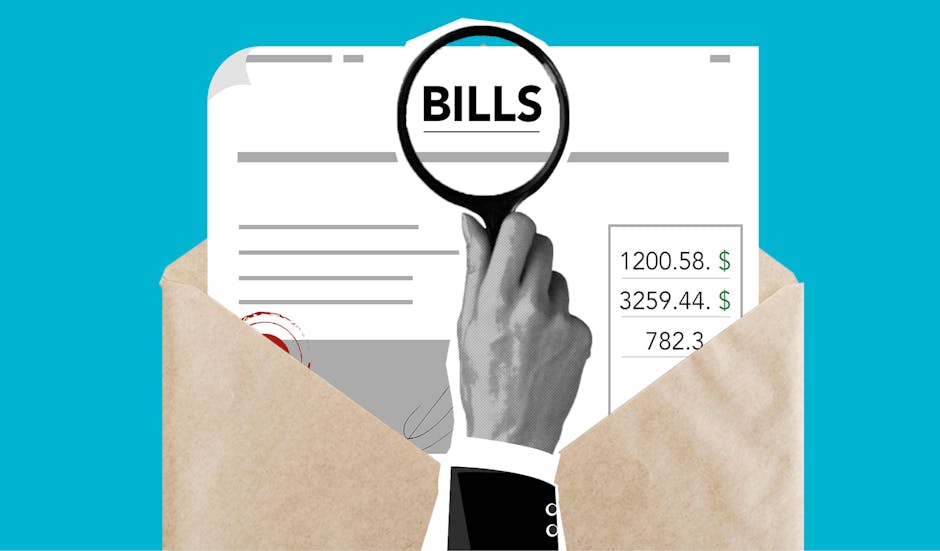Bank levies can strike like a bolt from the blue, turning an ordinary day into a scramble to safeguard one’s financial lifeline. This piece sheds light on the often misunderstood process of bank levies, aiming to arm you with knowledge and strategies to protect your assets. With a focus on Prince George’s County, MD, we navigate through the legalities, tenant rights, and the broader impacts of bank levies, offering practical advice for those who find themselves facing this challenging situation.
Understanding Bank Levies
A bank levy occurs when a creditor obtains court permission to take money directly from your bank account to settle an unpaid debt. The process begins with the creditor winning a judgment against you, proving to the court that you owe them money. Armed with this judgment, they can request the court to issue a bank levy.
Upon receiving notice of the levy, the bank freezes your account, preventing access to funds up to the amount owed, plus any additional costs associated with the levy process. This freeze remains in effect until the debt is paid or an agreement is reached with the creditor.
The discovery of a levy can be jarring, sometimes only realized when a payment bounces or a card is declined. Imagine attempting to purchase groceries, only to find out at the checkout that your account is frozen.
However, not all funds in your account may be subject to seizure. Laws protect certain types of income, such as Social Security, disability benefits, and child support. Proving the source of these funds can be a complex process.
Once the necessary amount is frozen, the bank notifies both you and the creditor. You have a limited window, typically around 30 days, to challenge the levy if you believe it to be erroneous or unlawful. Failure to act within this timeframe may result in the bank sending the money to your creditor, impacting your account balance.
A bank levy is a legal action that permits creditors, including unsatisfied landlords, to directly access your bank account for unsettled debts. Addressing debt issues proactively is crucial to avoid facing such drastic measures.

Legal Grounds for Bank Levies
In Prince George's County, MD, a creditor must obtain a court judgment acknowledging the debt owed by the debtor to enforce a bank levy. This legal recognition ensures that any steps to impose a levy are supported by a judicial mandate. A levy on a bank account commences only with the court's approval, highlighting the structured legal framework behind this significant financial measure.
With a court judgment in place, certain debts take precedence when applying a bank levy. Cases involving overdue tax payments or mounting child support arrears exemplify scenarios prone to bank levies, where the state requires collecting due amounts directly from an individual's financial reserves. Given these specific privileges, tax agencies and child support orders often lead to bank account levies, emphasizing the prioritization of these debts in legal recovery efforts.
Executing the levy in Prince George's County involves an intermediary stage where the creditor, now possessing a court order, presents the bank with a writ of garnishment. This legal document instructs the bank to seize assets from the debtor's account, directing them to settle the outstanding obligations outlined by the judgment.
The handling of these assets en route from the debtor's account to satisfying the creditor's claim is notable. Once the garnishment hits, funds are frozen, not immediately transferred. This suspension allows for any disputes about the levy's legitimacy to be raised by the account holder.
The procedurally steep path to executing a bank levy in Prince George's County, predicated on obtaining a court judgment and designated primarily for high-priority debts, demonstrates a judicial system that exercises considerable discernment. Recovery through a bank levy follows a path through the intertwined vines of legal confirmation and procedural nuance, rather than a straightforward snatch-and-grab approach.

Photo by nichtraucherinitiative on Unsplash
Tenant Rights and Protections
Tenants in Prince George's County, MD, have several protections under local and state law when facing a bank levy for rent collection. Understanding those rights can empower tenants to take action and potentially prevent the loss of funds.
Maryland law provides an automatic $6,000 exemption to everyone, meaning at least $6,000 in a bank account cannot be touched by creditors, including landlords seeking rent payments through a bank levy.1 Maintaining an account balance below this threshold could safeguard a significant portion of their funds from seizure. The law also identifies specific income sources that are generally exempt from bank levies, such as Social Security benefits, unemployment insurance, and child support received.2 Tenants receiving such benefits should document the source of their deposits carefully, as this documentation can be pivotal in contesting an unjust levy.
To fight a levy, the tenant must act quickly once notified. Typically, there's a 30-day window from the notice during which the tenant can contest the levy in court.3 Consulting with a legal professional as soon as possible increases the chances of resolving the issue without losing access to funds. Gathering and presenting evidence that the funds in the account come from legally protected sources is vital.
Even if the money in the account didn't come from exempt sources, tenants might still argue for exemptions based on hardship or misidentification of funds. Preparing a detailed budget showing all income and necessary expenses can demonstrate to a court the potential hardship a bank levy would cause.
Another line of defense includes ensuring the creditor followed all required procedures correctly. Any oversight or failure to adhere to legal protocols could render a levy invalid. For instance, if the landlord did not successfully obtain a judgment or failed to properly notify the tenant about the court proceedings, this might be enough to successfully challenge the bank levy.
For tenants sharing a joint bank account, it's essential to understand that half of the total balance is considered each person's property in Maryland by default.4 However, if it can be shown that all or most of the funds in the account belong to the non-debtor, those funds may largely be exempt from a levy. Documentation showing the source of all deposits into the account will be critical.
No matter how dire the situation may feel, quick and informed actions combined with legal advice can make a significant difference in protecting one's assets from a bank levy in Prince George's County, MD. Tenants in this predicament should seek legal counsel immediately to explore all available avenues for protecting their financial stability.

Impact of Bank Levies on Tenants
When tenants in Prince George's County, MD, face bank levies for unpaid rent, the effects can ripple beyond the immediate financial strain. The burden often extends to their credit scores, placing additional hurdles in their path to financial recovery. A tarnished credit report can linger for years, limiting their ability to secure loans, credit cards, and sometimes even employment, as certain employers check credit history as part of their screening process.
The stress of dealing with a bank levy can also induce significant mental and emotional tolls on tenants. The uncertainty and fear of not being able to access one's own funds for basic needs can lead to increased anxiety and stress levels. This emotional burden can affect every aspect of an individual's life, from personal relationships to job performance.
Bank levies on tenants can escalate to eviction and homelessness. When tenants are unable to access their funds to pay rent or find themselves overwhelmed by mounting debts, the risk of losing their homes becomes very real. In areas like Prince George's County, where housing costs are already high, evicted tenants may find it exceedingly difficult to secure new housing, especially with a damaged credit score and depleted savings.
Children and families are especially vulnerable in such situations. The instability and stress of facing eviction and potentially homelessness can have long-term impacts on children's education, health, and emotional well-being.5 Many families in this predicament struggle to find stability long after the financial issue has been resolved.
Recovering from the aftermath of a bank levy requires strategic financial planning and discipline. Tenants may need to prioritize debt repayment, often at the expense of other financial goals. This might include delaying educational ambitions, home ownership dreams, or even necessary healthcare. The path to reinstating financial health can be arduous and long, demanding sacrifices that affect tenants' future opportunities and quality of life.
In a community-centered area like Prince George's County, the effects of a tenant's bank levy extend beyond the individual. Local businesses may suffer when residents have less disposable income to spend, potentially affecting the local economy. Social networks within the community can be strained as individuals facing financial difficulties may withdraw or require increased support from already stretched-thin social services.
While bank levies serve as a legal tool for creditors to collect unpaid debts, the consequences for tenants subjected to such measures are profound and multifaceted. The financial strain, coupled with credit score implications and the looming threat of eviction and potential homelessness, highlights the significance of comprehensive support systems for those in crisis. Community support services, legal assistance, and financial counseling play a critical role in helping affected tenants navigate these challenging times and work towards recovery and stability.

Navigating Bank Levies
Once your bank account is hit with a levy, quick action can make a difference in saving your money. Contact your bank right away to understand the specifics of the levy – how much is being held and the transactions affected. Your bank should provide you with the contact information for the creditor or their lawyer, allowing you to discuss the situation directly and possibly negotiate a settlement or payment plan.
Working with your bank during this process can be beneficial. Inform them about any protected funds (like Social Security benefits) in your account. Although banks often identify these automatically, it's wise to confirm. You might need to provide additional documentation to prove these funds should be exempt from the levy.
Seeking legal assistance is crucial. Lawyers specializing in debt collection can offer guidance on how to respond to the levy. They may help file necessary court documents to contest the levy, especially if you believe it was made in error, if exempt funds were levied, or if you face extreme financial hardship as a result.
Stay organized and prepared during this time. Collect and secure all related paperwork, including notices about the levy, correspondence with your bank, and any communication with the creditor. This documentation is vital when discussing your case with a lawyer or a financial advisor.
Educate yourself on your rights. Maryland law allows for an automatic $6,000 exemption in bank levies that can protect a portion of your funds.1 Knowing such facts can be empowering and handy in discussions with creditors and legal professionals.
Consider attending financial counseling. Professionals can help you understand your financial situation better and provide strategies for managing your debts more effectively. They can also offer advice for rebuilding your credit score and planning for a financially stable future, ensuring you're better prepared should a similar situation arise again.
Dealing with a bank levy doesn't mean facing the end of your financial independence. By knowing whom to contact, understanding your rights, seeking qualified assistance, and employing smart financial planning, you can navigate and possibly mitigate the impacts of a bank levy in Prince George's County, MD.

Preventing Bank Levies
To keep a tight leash on your finances and prevent bank levies, setting up a budget tailored to your earnings and expenses is essential. This means making sure rent and other crucial bills are at the top of the list. Doing so helps in preventing any rent arrears from accumulating, which is often the precursor to legal actions such as bank levies.
Opening a separate savings account explicitly earmarked for rent is a practical step. By funneling your rent money into this account each pay period, you ensure that your rent money stays untouched for its intended purpose. Make sure this account doesn't have an overdraft facility to avoid dipping into funds meant for other obligations inadvertently.
In Prince George's County, amidst ensuring financial vigilance, maintaining an open line of communication with your landlord is equally important. If you foresee any difficulty in making timely rent payments, proactively approach your landlord to discuss possible solutions. Proposing a partial payment plan or requesting a temporary grace period could be favorable alternatives to facing legal actions for unpaid rent.
Staying abreast of local tenant protection laws in Prince George's County ensures you're armed with knowledge about your rights and what actions a landlord can legally take against you for unpaid rent. This education can empower you in negotiations and provide clarity on how to navigate financial difficulties without facing severe repercussions like bank levies.
If money matters start spiraling, consulting a non-profit credit counseling service might help get your finances back on track before things get dire. These organizations can offer personalized advice on managing debt, budgeting effectively, and in some cases, may negotiate with creditors on your behalf to arrange manageable repayment plans.
Taking preemptive actions, such as automating your rent payments, can also be a game-changer. By setting up direct debits for your rent, you ideally eliminate the risk of forgetting to make a payment. This automation ensures that your most important bill is always paid first, protecting you from the domino effect that can lead to bank levies.
Keeping an emergency fund could be your financial safety net, preventing you from missing rent payments in tough times. Start small and consistently contribute to this fund, aiming to cover at least three months' rent.6 This strategic saving could make a world of difference during unexpected financial challenges.
Consider participating in tenants' unions or community groups that offer support and resources for financial management. These groups often have a wealth of information on tenant rights, ways to handle disputes with landlords, and tips for securing your financial well-being against potential threats like bank levies.
By implementing a combination of financial planning, strategic saving, proactive communication, and leveraging available resources, tenants can substantially mitigate the risk of facing a bank levy for unpaid rent in Prince George's County.

In conclusion, understanding the intricacies of bank levies and being proactive in managing your finances can significantly reduce the risk of experiencing such financial upheavals. The key takeaway is to stay informed about your rights and available protections, especially in Prince George’s County, MD. By doing so, you can make informed decisions and take swift action to mitigate the impact of a bank levy on your life.
- Maryland Code, Commercial Law, § 11-504(b)(5)
- Maryland Code, Commercial Law, § 11-504(b)
- Maryland Rules, Rule 2-643(c)
- Maryland Code, Financial Institutions, § 1-204(a)
- Desmond M, Kimbro RT. Eviction's fallout: housing, hardship, and health. Social Forces. 2015;94(1):295-324.
- Gjertson L. Emergency saving and household hardship. Journal of Family and Economic Issues. 2016;37(1):1-17.
